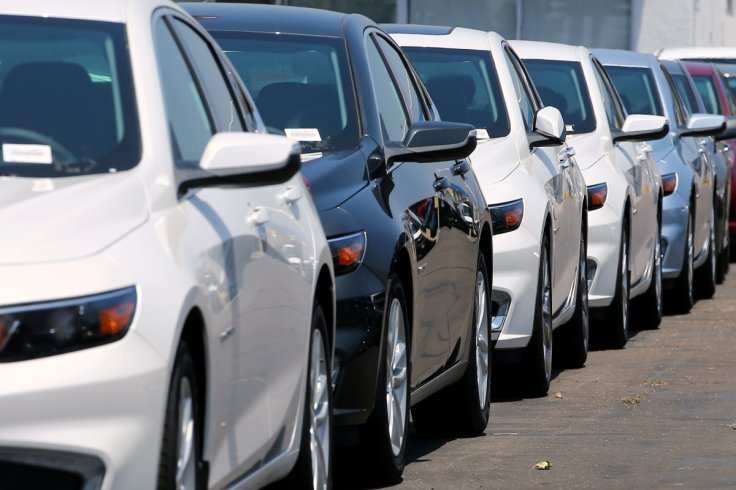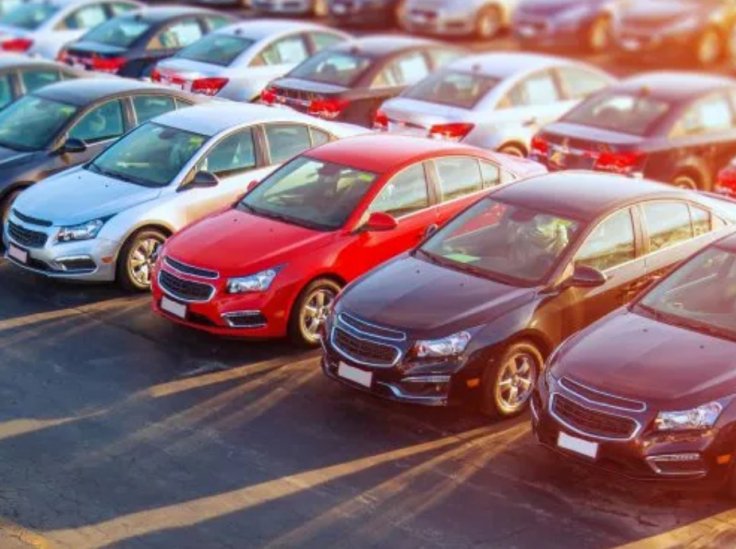New car prices could rise by as much as $12,000 once President Trump's tariffs on Canada and Mexico go into effect, a report suggests. Trump's 25 percent tariffs on his neighboring countries would raise the cost of producing a crossover utility vehicle by at $4,000, according to a new study from Anderson Economic Group, an automotive research and consulting firm.
For electric vehicles, the increase would be nearly three times as much, with the added expenses likely being passed on to consumers, according to the study, which was first reported by Bloomberg. This came as Canada and Mexico also announced retaliatory tariffs on the United States, escalating trade war fears.
Car Prices to Soar Astoundingly

"That kind of cost increase will lead directly — and I expect almost immediately — to a decline in sales of the models that have the biggest trade impacts," Patrick Anderson, the consulting firm's chief executive, told Bloomberg.
Car prices are already unusually high due to inflation from the pandemic era, with new vehicles now averaging close to $50,000.
According to a report from Kelley Blue Book, the average transaction price last month reached $49,740—just $200 below its peak in December 2022. Following a brief pause, Trump's hefty tariffs are scheduled to take effect on Tuesday.
Experts caution that these taxes could drive auto prices even higher and potentially lead manufacturers to halt production of popular models such as the Chevrolet Silverado pickup and Ford Bronco Sport SUV.
The proposed tariffs have sparked concern among auto executives, with Ford CEO Jim Farley warning last month that they could "blow a hole in the U.S. industry like we have never seen."
Senior executives from General Motors, Ford, and Stellantis—which owns Jeep, Dodge, and Ram—met with the Commerce Department via Zoom last week to voice their concerns, sources familiar with the discussions told Bloomberg.
Automotive executives have reportedly urged the White House to target only imported vehicles that lack U.S.-made components, as many domestically produced cars still rely on parts from other countries.
Even Tesla Will Feel the Heat

Tesla, owned by Trump ally and DOGE leader Elon Musk, assembles all of its U.S.-sold vehicles within the country. However, according to the National Highway Traffic Safety Administration, around 20% of Tesla's components come from Mexico.
With the tariffs in place, auto sales are expected to decline as consumers shy away from potentially record-high prices.
According to Dan Hearsch, head of the Americas automotive division at consulting firm AlixPartners, automakers will face even greater challenges as they are forced to halt production of certain models, further impacting sales.
Hearsch predicts that U.S. auto sales could drop by up to 500,000 vehicles as manufacturers temporarily halt production on certain models built in facilities located in Canada and Mexico. "Some of those vehicles that can't be produced in the US just probably won't be made for a while," Hearsch told Bloomberg.
Ford manufactures its popular Maverick pickup truck, Bronco Sport SUV, and electric Mustang Mach-E in Mexico. GM builds Chevrolet Silverado pickups across Mexico, Canada, and the U.S., while Stellantis produces Ram pickups in both Mexico and the U.S.
Although automakers will try to shift as much production as possible to the U.S., they are expected to face challenges in quickly restructuring their intricate North American supply chains.
"You'll see some model and trim types just disappear," Anderson told Bloomberg.
Honda has reportedly abandoned plans to produce its newest Civic model in Mexico, opting instead for its Indiana facility, according to a Reuters report on Monday.
In January, Stellantis also reversed its decision to close its Illinois plant after its chairman, John Elkann, met with Trump and committed to increasing U.S. manufacturing jobs.
Meanwhile, Volkswagen is said to be considering U.S. production sites for its Audi and Porsche brands to sidestep the proposed tariffs, according to a German news source.
Car manufacturers have been hurrying to transport materials across the border into the U.S. before the tariffs take effect. "It's got everybody in an absolute spin," Hearsch said.
Secretary of Commerce Howard Lutnick announced on Sunday that the planned tariffs will proceed as scheduled on Tuesday. How long the tariffs will be in place remains unclear, as the White House has said they are planning to pressure neighboring countries to curb illegal fentanyl smuggling.









